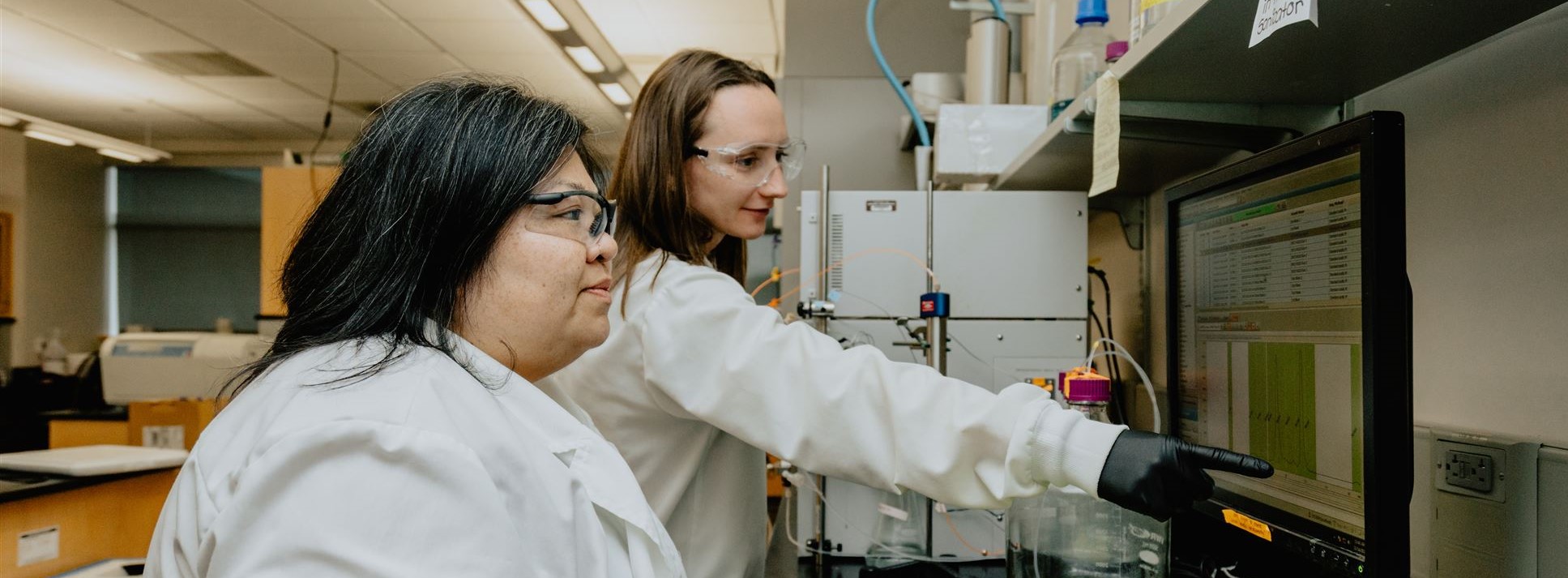
It was an honor when she first learned that her advisor was nominating her for the Koerner Family Foundation (KFF) Fellows program, but Diana Hammerstone ’20 is a busy fifth-year materials science and engineering PhD student at Lehigh University.
After she gave Lesley Chow, an associate professor of bioengineering and materials science and engineering in the P.C. Rossin College of Engineering and Applied Science, her CV to include as part of the nomination process, Hammerstone forgot all about it.
And then she got the email announcing she had been selected as Lehigh’s 2024-2025 KFF Fellow. This prestigious fellowship recognizes exceptional domestic PhD students in engineering who have passed their candidacy exams and demonstrated a commitment to pursuing research careers in the United States. Awarded annually to promote innovation and global competitiveness, the fellowship provides $15,000 to support recipients’ academic and research pursuits.
“It had kind of gone to the back burner of my mind for a while,” says Hammerstone. “And when I read the email, I think that was the first time I realized it was a college-wide award, not a departmental award. I was definitely surprised.”
Chow, her advisor, was not at all surprised.
“Diana is an exceptional student who is curious and bright and thinks deeply about her research,” says Chow. “She was recognized early in her career as a National Science Foundation Graduate Research Fellow. It has been a joy to see her grow and emerge as a leader in my group and in our research field. She deserves this recognition and is a strong representative for Lehigh.”
Hammerstone came to Lehigh as a cross-country and track and field athlete, attracted by the university’s commitment to providing a challenging academic environment alongside the support to excel in athletics. She intended to major in chemical engineering until, during her first year, she discovered that materials engineering was a thing. The discipline used chemistry in intriguing ways she’d never thought about before. She changed her focus, and as a sophomore, took Introduction to Polymers with Chow.
“I was debating what to do that summer, whether I wanted to pursue a research position in a lab, or get an industry internship,” says Hammerstone. “I talked to Professor Chow and she was so good at explaining the work she was doing, and it sounded super interesting, so I started working for her in the summer of 2018. I’ve been in her lab ever since.”
Generally speaking, Chow’s lab uses solvent-cast 3D printing to fabricate polymer-based scaffolds for tissue engineering. The technique may one day help regenerate cartilage in the knee or hip for people with osteoarthritis, and perhaps postpone or negate the need for a future knee replacement.
Hammerstone’s project involves tuning the surface properties, like stiffness, of the scaffolds.
“We want stem cells to see a soft surface, and say, oh, I want to become cartilage in this environment,” she says.
The goal of her work is to tune the scaffold, for example, so that the top half features a softer surface and the lower half is stiff, allowing researchers to observe differences in how the stem cells respond spatially.
“We’re trying to create not just cartilage, but the entire interface where your cartilage transitions to your bone,” she says. “That’s really the tissue that needs to be regenerated when you have early-stage osteoarthritis. So there are places where I need that soft surface to regenerate cartilage and places where I need it to regenerate bone. Ultimately, I want to be able to have really fine control over the properties of the scaffold in independent regions so I can control what cells are doing with my material.”
The fellowship award will help support Hammerstone in her final year as a PhD student (she expects to graduate in August), and as she decides what’s next, something else she hasn’t had a lot of time to focus on (but likely some combo of industry research and adjunct teaching). The award is also yet another reminder that she chose the right path all those summers ago.
“I knew that getting a PhD was going to be a long haul,” she says. “But I’ve always felt so supported by Lesley, and I enjoy working with her so much. For sure, there were times when I felt like I wasn’t chugging along as fast as I wanted to, but now that I’m near the end, I can see all the work that I’ve done, and it feels like a really big, really satisfying accomplishment. It’s totally worth it.”


